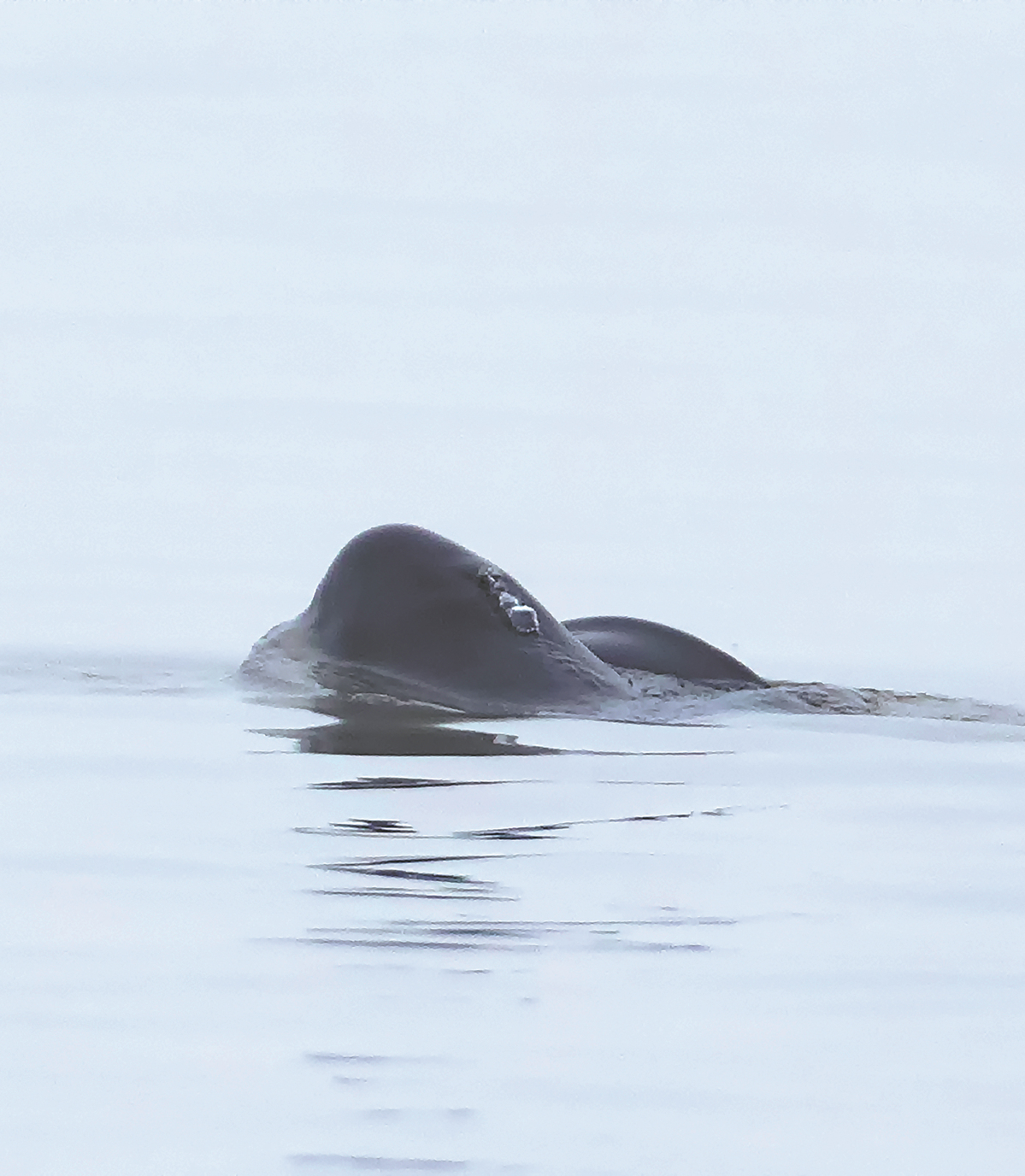Numbers of Yangtze finless porpoise increasing
Environmental efforts bringing endangered populations back to life


In Jiangxi province's Hukou county, the waters of the Yangtze River converge with the Poyang Lake. Here, a patrol team, led by Shu Yin'an, is witnessing firsthand the resurgence of the elusive Yangtze finless porpoise.
Shu, 57, born to a family of fishers, has put down his net to take up the mantle of environmental protection and ecological restoration along Asia's longest river.
In the 1980s and 1990s, the Yangtze finless porpoises were a relatively common sight, according to Shu. But by the early 2000s, predominantly due to human activities, their numbers started to dwindle.
"Weeks would pass without a single glimpse of these majestic creatures," he said. "But it wasn't just the porpoises, all fish populations were decreasing, leading to empty fishing trips sometimes."
Four years into a fishing ban on the Jiangxi section of the Yangtze River Basin, which includes Poyang Lake, along with other conservation efforts, Shu said he's starting to notice a significant increase in fish, as well as the porpoises.
"The sightings of porpoises have become more frequent, and we can sometimes spot a mother porpoise and its pup," he said.
The Yangtze finless porpoises are distributed in the middle and lower reaches of the Yangtze River Basin. That includes Poyang — China's largest freshwater lake, as well as Dongting Lake and the mainstream of the Yangtze. Classified as critically endangered and listed as a national first-class protected wild animal, they are believed to be a vital indicator of the health of the Yangtze ecosystem due to their sensitivity to environmental changes.
According to surveys conducted every five years by the Ministry of Agriculture and Rural Affairs, between 2006 and 2017, the porpoise population in the mainstream of the Yangtze plummeted from 1,225 to 445, a drop of 64 percent.
As for the whole Yangtze River Basin, the situation was similarly severe. Hao Yujiang, a researcher at the Institute of Hydrobiology of the Chinese Academy of Sciences, wrote in an article published last year that the porpoise population shrank in the early 1990s from 3,600 to 1,800 by 2006, and further dropped to about 1,040 in 2012. The ministry's survey shows the porpoise population in the whole Yangtze River Basin in 2017 stood at 1,012.
"The porpoise population was experiencing an accelerating decline at that time and the species faced a serious risk of extinction," Hao said in the article.
Experts agreed that the fast decline of the porpoise population was due to the deteriorating ecosystem in the Yangtze River Basin. By 2018, the degradation of its ecosystem functions was so serious that Poyang and Dongting lakes were becoming frequently hit by droughts, and the biological integrity index of the Yangtze River in some areas stated there were even "no fish".
Hao said the Yangtze River once boasted a rich and diverse ecosystem, and was one of only two rivers in the world home to two kinds of cetaceans, with the other being the Amazon River in South America.
The massive fall in the Yangtze River's biodiversity has drawn attention from the top leadership in recent years. President Xi Jinping chaired two symposiums about the Yangtze River Economic Belt, in January 2016 and April 2018. At both conferences, he demanded concerted efforts to protect the Yangtze and to avoid excessive development.
The central government quickly adopted a series of measures in the following years.
In 2017, the agricultural ministry announced that all aquatic reserves in the Yangtze River Basin should ban fishing, starting from Jan 1, 2018.
In 2018, the State Council issued a notice on strengthening the protection of aquatic life in the Yangtze, which said emergency conservation actions would be implemented to protect endangered aquatic species like the Yangtze finless porpoise.
The measures included better protecting the porpoises' habitats, carrying out relocation, and establishing artificial breeding bases and science education wings in adequate research institutions and aquariums.
The Ministry of Agriculture and Rural Affairs issued a notice in 2019 stipulating that a strict 10-year commercial fishing ban should be implemented in the entire Yangtze River Basin no later than Jan 1, 2021.
The efforts have yielded positive results. A survey by the national agricultural authority in 2022 showed that the porpoise population had rebounded to 1,249, marking a turnaround from the previous decline. Several cities in the Yangtze River Basin have reported the return of the mammal after its disappearance for decades. In Jiangxi's provincial capital Nanchang where the Ganjiang River, a tributary to the Yangtze, flows, porpoises have been reported in the downtown section for the first time in more than 40 years.























